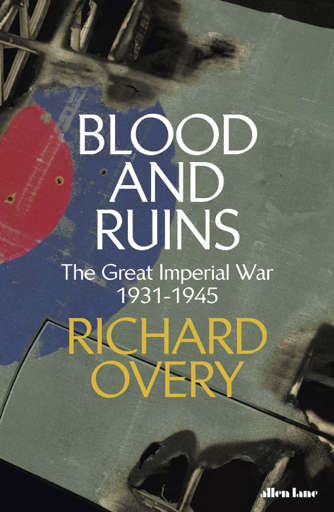Martin Kopischke reviewed Blood and Ruins by Richard Overy
Forget what you thought you knew about the Second World War
5 stars
Overy’s monumental, erudite take on current revisionist historical WW II scholarship repositions a conflict traditionally seen as a mostly Western one (with a Pacific sideshow) as but a part of the long death throes of territorial empire post WW I. The breadth and depth of the book is frankly mind blowing, even if some parts suffer a bit from being visibly based on elder, narrower scholarship (like the chapter on popular resistance, which almost entirely glosses over the South and South East Asian anti-Japanese resistance movements that play such an important role in the book’s opening and closing chapters), and some social science methodical rigour would have helped the more psychological analyses, but these are minor niggles that cannot mar a colossal achievement.
Overy never loses track of the grand picture; his views on race, gender and power in the conflict are unflinchingly clear and modern; and his writing is …
Overy’s monumental, erudite take on current revisionist historical WW II scholarship repositions a conflict traditionally seen as a mostly Western one (with a Pacific sideshow) as but a part of the long death throes of territorial empire post WW I. The breadth and depth of the book is frankly mind blowing, even if some parts suffer a bit from being visibly based on elder, narrower scholarship (like the chapter on popular resistance, which almost entirely glosses over the South and South East Asian anti-Japanese resistance movements that play such an important role in the book’s opening and closing chapters), and some social science methodical rigour would have helped the more psychological analyses, but these are minor niggles that cannot mar a colossal achievement.
Overy never loses track of the grand picture; his views on race, gender and power in the conflict are unflinchingly clear and modern; and his writing is compelling and persuasive, even where he forces you to leave your comfort zone (like he does for me, a German who grew up with the dogma of the quasi-ahistorical character of the Shoah my countrymen inflicted on the Jews, when he contextualises the whole ideology and execution as a part of the last war for empire).
This, I suspect, is the book to read for years hence if you want to understand what happened, not just 1939 to 1945, but 1930 to 1960, and very much so if you want to understand what that period means for today, a time when that recent past throws long shades again.

